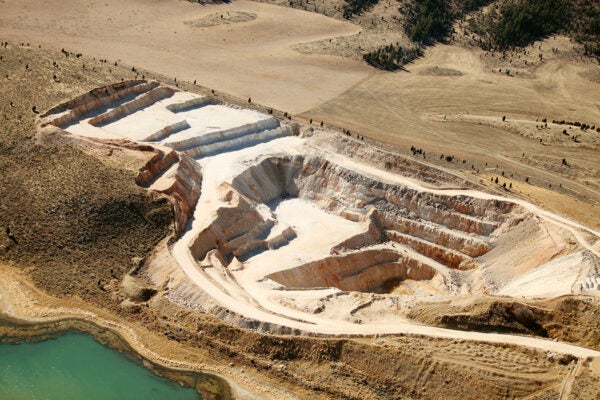The Shah, Our Man in Tehran?
Playing up the threat of the communist incursions, the Shah of Iran gained more and more support—financial and political—from the United States.
Putting a Cork in It: In Construction, That Is
The bark of the evergreen oak Quercus suber has been used for millennia as a construction material. Could it be our answer to sustainable buildings?
US–Iran Relations: 1953
What really happened in Iran back in the day, and what did the United States have to do with it?
The Rise and Fall of the Equestrian Cultures of the Plains
The introduction of the horse to North America by the Spanish transformed the lives of the Indigenous peoples of the Plains in decidedly mixed ways.
Copenhagen: Bike City from Back in the Day
How did Copenhagen become a “city of cyclists,” where a third of all journeys are by bicycle?
Exporting the Convict Clause: Slaves of the State in the Canal Zone
The criminalization of Blackness enabled by the Thirteenth Amendment brought chain gangs to the construction projects of the Panama Canal Zone.
Life According to Phosphorus
Phosphorus is essential for fertilizing high-yield agriculture. The US domestic supply, restricted to Florida, is expected to run out in a couple of decades.
Of Heights and Men
Given its strong gendered associations, it may be surprising that height hasn’t been well studied by historians.
Walking the Race Line on the Train Line
Investigators never reached a conclusion about the death of Pullman porter J. H. Wilkins, but his killing revealed much about the dangers of his profession.
The Ever-Lengthening History of Tobacco
People have been smoking in the Pacific Northwest for more than 4,500 years.
One Thousand Years of Domelessness
For more than 900 years, between the fifth century and the Renaissance, Romans didn’t cap their buildings with domes. Why?
Imperfect Memories of British Slavery
British abolition in 1833 was accompanied by £20 million paid in compensation to slaveholders, many of whom subsequently "forgot" slavery ever existed.
Thomas Jefferson: A Vote for Cutting Off Your Nose
To reduce Virginia’s use of the death penalty, Thomas Jefferson proposed using permanent disfigurement as a punishment for rape, polygamy, and sodomy.
Nuclear France’s Empire of the Bomb
The first French nuclear bomb test took place in the Sahara in 1960 in the midst of the Algerian War, but French history doesn’t connect the two events.
Autocratic Capitalism: An Introduction
Americans are taught that capitalism and democracy go together like motherhood and apple pie. It may be time to unlearn that lesson.
A Primer on Settler Colonialism
What is this “settler colonialism” that’s become all the rage? Let’s take a closer look.
Gray’s Music: Over the Telegraph
Inventor of the telephone Elisha Gray also pioneered the world’s first purpose-built electric musical instrument.
Smoke Gets in Your Eyes: Animal Sacrifice and the Greek Gods
The ritual of animal sacrifice in ancient Greece brought humans closer to the gods even as it defined their differences.
Putting the Red in Soviet Color Film
A Soviet alternative to Disney cartoon became a state ideal, but the three-color process behind Silly Symphony cartoons wasn’t easy to perfect.
The Trouble with Reentry
Reentry of space junk in the 1970s forced First Nations communities into a reckoning with Cold War geopolitics and a burgeoning envirotechnical disaster.
Audacity and Gaslights: Empowering or Zombifying Citizens?
Political scientists Eric Beerbohm and Ryan W. Davis consider how citizens can protect against gaslighting while staying open to audacious ideas of change.
Justice in Baltimore
In an atypical case, a white policeman was convicted of killing a Black man at a private house party.
What We Talk About When We Talk About Authoritarianism
Is the global state system in crisis, with authoritarianism, nationalism, populism, and illiberalism running amok?
A Gold Rush of Witnesses
Letters, diaries, and remembrances shared on JSTOR by University of the Pacific reveal the hardships of day-to-day life during the California Gold Rush.
Democratic Backsliding
Political scientist Javier Corrales uses Venezuela as a case-study of democratic backsliding that’s been initiated by the winner of an election, not the loser.

























